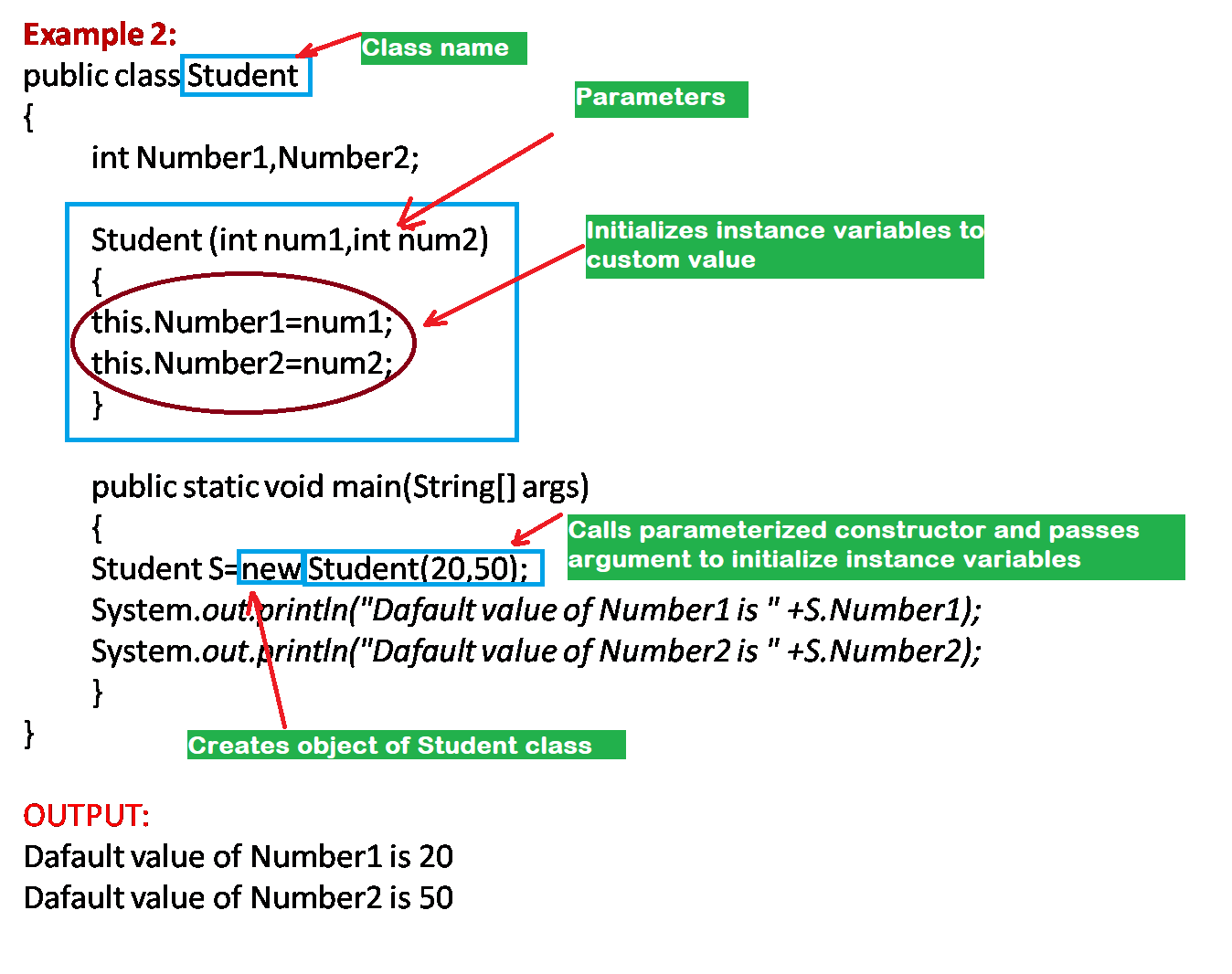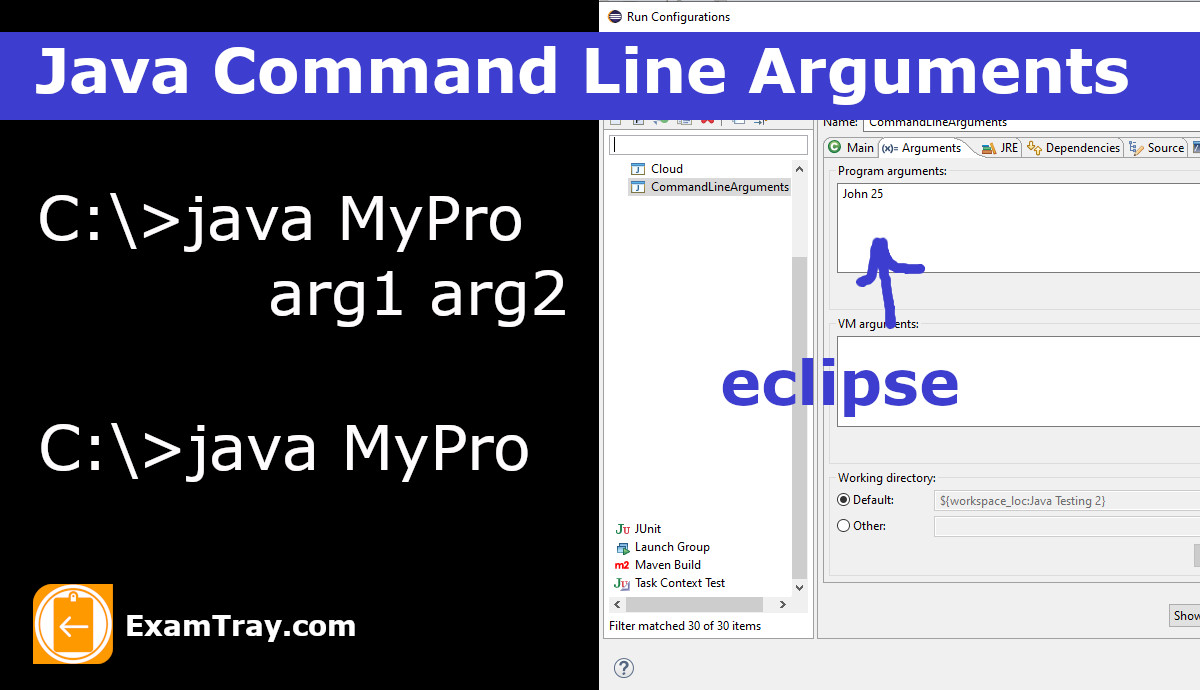
Here is a formula that is going to show you what I mean: Having this clear, let's think in term of Object Oriented Programming (OOP), to meet the requirement of OOP principals (The Objects Oriented Programming (OOP) is constructed over four major principles: Encapsulation, Data Abstraction, Polymorphism and Inheritance.), Getter() and Setter() methods is the key to achieve this.
#Java constructor method update#
Setters(), or mutators, are methods that provide the caller with an opportunity to update the value of a particular instance variable. Method is invoked explicitly.Ĥ) Getters(), or accessors, are methods that provide access to an object's instance variables. Method must have return type.ģ) Constructor is invoked implicitly. Method is used to expose behaviour of an object.Ģ) Constructor must not have return type.

Constructors are similar to Methods, however there are few differences between constructor and method in java:ġ) Constructor is used to initialize the state of an object. I hope this explanation helps everybody that want to know when to use constructors or setters() and getters() methods (Accessors and Mutators). I think you asked a good question: - But when do we use constructors and when do we use setters?įirst, let's start with some concepts. I won't say everything has to be initialised in the constructor because different approaches exist, like lazy-evaluation which can be used even with immutable objects. Sad :(Īnd as Axel mentioned, if you want to create immutable objects, you cannot use setter-methods approach. values weren't populated - I had to do that. tSomeString("setSomeStringNow") // Setter approach tSomeString("IWantANewValue") // Value changed using setter, if required. But even after this I can change the value Yippy, I can just use my obj1, as the values are already populated You set the value using a setter approach, when you want to change the value of a field, after the object has been created.įor example:- MyObject obj1 = new MyObject("setSomeStringInMyObject") // Constructor approach This way you need not explicitly call the setter methods for each field in the object to populate them. S1.You should use the constructor approach, when you want to create a new instance of the object, with the values already populated(a ready to use object with value populated). Student S2 = new Student(1, "Deepak Krishna") //This will call parameterized constructor Student S1 = new Student() // This will call default constructor (" this is a parameterized constructor ") Method can be final, abstract, static and synchronized.

Method are called using object of a class or static methods can be called using class name.Ĭompiler create default Constructor if does not exist.Ĭompiler does not create any default method.Ĭonstructor can not be final, abstract, static and synchronized.

Methods, are inherited by subclass to provide the re usability of code.Ĭonstructors called automatically when object of a class is created. Method has a return type, if it's not returning any value then return type will be void.Ĭonstructors are not inherited by subclass as they are not members of class. Method can have different name than class name.

Method is used to expose behavior of an object i.e action or task or operation.Ĭonstructors has same name as class name. Difference between constructors and Methods: Point of DistinctionĬonstructor is a special type of method in Java used to initialize objects of its class.Ī Java method is a collection of statements that are grouped together to perform an operation.


 0 kommentar(er)
0 kommentar(er)
